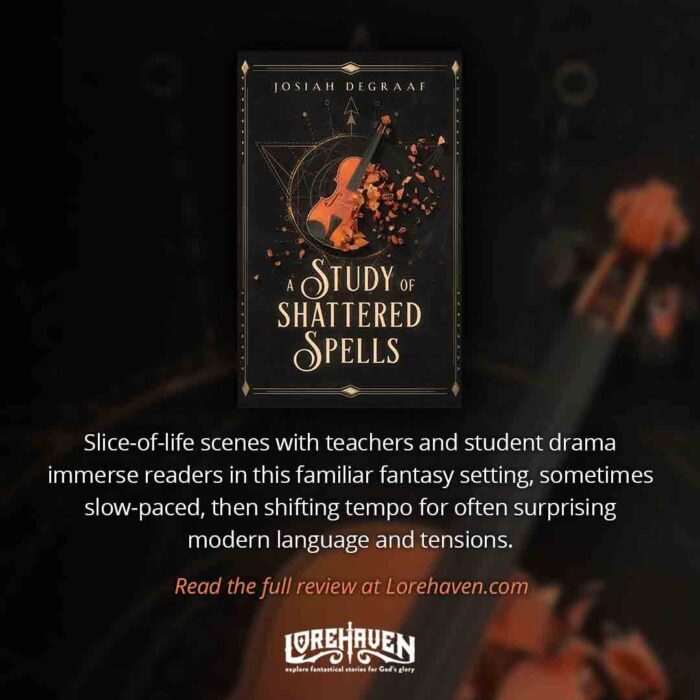Why Boromir Failed Gondor, Yet Died a Hero
“Gondor has no king. Gondor needs no king.” So says Movie Boromir at the Council of Elrond, while Aragorn stoically endures the indignity, in The Lord of the Rings: The Fellowship of the Ring (2001). The film shows from the Council of Elrond on that something is rotten in the state of the Fellowship—quite obviously, Boromir.
In my estimation, the film done Boromir wrong. Book Boromir does suggest using the Ring as a weapon, but accepts others’ veto of this idea. Yes, Tolkien notes that Boromir is proud. But so are the admirable Rohirrim. Boromir proves friendly and not antagonistic toward Aragorn, and it’s mostly by Boromir’s strength that the Fellowship escapes the deadly mountain Caradhras.
Book Boromir is actually pretty awesome.
Why does this distinction matter? Because stories often show us characters who have been treacherous all along, or obviously leaning that direction. Less often do stories show us good and noble people turning into enemies. In Tolkien’s Middle-earth, Thorin of The Hobbit and Boromir share this trajectory.
So why does Boromir turn from Aragorn’s BFF to Fellowship-breaker?

Boromir denies Gondor’s need for a king in The Lord of the Rings: The Fellowship of the Ring (2001)
‘I took the journey upon myself’
When fans discuss Boromir’s fall, they accept these reasons as given: Boromir genuinely wants to use the Ring for good, as a weapon against Mordor to help his people. His strength and success also make him more susceptible to the Ring’s temptation.
Book Boromir is not antagonistic during the Council of Elrond. But his speeches at the Council still foreshadow what’s to come, showing the deeper heart issue that drives his behavior.
He has a savior complex.
His feelings are understandable. For ages, Gondor has seemingly kept Sauron’s forces from overrunning other lands. But Boromir’s mindset goes beyond military strategy. His brother Faramir has a disturbing dream, and wanted to seek counsel in Rivendell. Faramir is a capable man, but “since the way was full of doubt and danger,” says Boromir, “I took the journey upon myself.”1
Later, when the Council rejects Boromir’s idea to weaponize the Ring, he says, “So be it. . . . Then in Gondor we must trust to such weapons as we have.”2 Boromir’s key word is trust. In what does he trust? He does not “beg any boon”3, looking for help outside Minas Tirith, Rather, he trusts in “such weapons as we have”—in what Gondor can do.
In fact, the only reason Boromir came to the Council is to seek the meaning of Faramir’s dream, because that dream might show Gondor the path to victory.
‘There are other powers at work far stronger’
But Boromir is wrong about using the Ring and about the world and his place in it. The Council corrects his error when Elrond tells him, “There are other powers and realms that you know not, and they are hidden from you.”4
What are these powers? One is certainly Pity, which appears capitalized when Gandalf commends it to Frodo in the chapter “A Shadow of the Past.” In that discussion, Pity is the opposite of Boromir’s mindset, describing Bilbo’s refusal to take matters in his own hands (such as doling out his own brand of justice for Gollum). Bilbo made the right choice and “he has been well rewarded.”5 Rewarded by whom? Gandalf doesn’t lift the veil to peer into The Silmarillion’s pantheon, but he is definitely referencing a higher power beyond themselves. This higher power apparently likes Pity, and a vital part of Pity is trusting a justice, a power, beyond one’s own reckoning.
In the Council, Aragorn also corrects Boromir’s misconception that only Gondor stands between Sauron and Middle-earth: “Many evil things there are that your strong walls and bright swords do not stay,” Aragorn says. “Peace and freedom, do you say? The North would have known them little but for us.”6
In other words, Boromir’s view of himself and his people standing between Sauron and the rest of the world, is a fantasy based on his limited experience. He’s not as effective as he thinks—and besides, “There are more things in heaven and earth, [Boromir], than are dreamt of in your philosophy!” How often must we confront our delusions about our own abilities to change the world!
Yet Boromir isn’t comforted by other powers at work in the world. Throughout the quest, he remains the Company’s most vocally suspicious member. He casts doubt on any idea outside his own experience, such as traveling into Moria or Lothlorien, or Gandalf’s plan to destroy the Ring. Boromir apparently did not take to heart what he heard at the Council, for at the book’s end, Boromir still insists, “Yet [our] strength has long protected [Hobbits] far away in your little country, though you knew it not.”7
Boromir’s self-focused view makes him desperate, grasping for a weapon he thinks will enhance his abilities and merits that he assumes are his only hope.

Boromir (Sean Bean) examines the One Ring in The Lord of the Rings: The Fellowship of the Ring (2001)
In distinct contrast, Boromir’s foil Aragorn avows, “I do not think it is our part to drive [Frodo] one way or the other. Nor do I think that we should succeed, if we tried. There are other powers at work far stronger.”8 Therefore, Aragorn can also freely say in The Two Towers, “With [Frodo] lies the true Quest. Ours is but a small matter in the great deeds of this time.”9 The rightful king of Gondor’s approach proves far different from Boromir carrying the world’s weight on his shoulders!
‘Few have gained such a victory. Be at peace!’
At the start of book 2, The Two Towers, that weight proves too much. Boromir falls.
“I have failed.”
“No!” said Aragorn, taking his hand and kissing his brow. “You have conquered. Few have gained such a victory. Be at peace! Minas Tirith shall not fall!”
Boromir smiled.10

Boromir (Sean Bean) dies a hero in The Lord of the Rings: The Fellowship of the Ring (2001)
Here the Christ-figure, Aragorn, grants absolution to his foil, the natural man.
How did Boromir conquer? He certainly didn’t conquer his own temptation. That was removed and carried beyond his reach. And he didn’t conquer his assumed foe: the forces of evil in Middle-earth. He couldn’t even save Merry and Pippin.
However, by sacrificing himself for Merry and Pippin, Boromir trades pragmatism for virtue. He accesses the “other powers” at work in the world outside of himself. Perhaps even better, he admits it’s not all up to him. “I have failed,” he confesses.
Charles Spurgeon also believed such confessions access a greater power. In his sermon “The Sentence of Death in Ourselves,” Spurgeon says,
The first part of human salvation is the sentence of death upon all human power and merit. When all hope in self is quite gone, Christ comes in, and with his infinite grace rescues the soul from destruction. As long as you think you can swim, you will kick, and struggle, and drown; but when you see the futility of all your own efforts, and perceive that you are without strength, you will leave yourselves with Jesus, and be saved. The eternal power will come in when your power goes out.
Everything Boromir thought he had to accomplish, others end up accomplishing for him. Aragorn saves the city that Boromir thought was his to save. Gandalf rescues the brother whom Boromir had taken it upon himself to protect. And finally Frodo, the person Boromir betrayed, delivered the Ring (which would have destroyed Boromir’s soul) to its destruction. He ended forever the threat that Boromir believed was his alone to keep out of Middle-earth.
All of these heroes conquered in Boromir’s place. And by participating in the power of weakness, Boromir conquered with them.
































Fantastic article. Thank you Shannon.
Boromir is such a great example of the exonerated antagonist in both senses. Other characters do walk so close to the brink of failure only to turn the corner and provide relief for his fellow members of the Fellowship. His actions do not save Merry Pippin, but buy the forces of good a small bit of time. It’s a solid example of the “Heroism and Moral Victory” seen in the two part video essay by”Like Stories of Old” found here. https://www.youtube.com/watch?v=ndEWof-8xTY&t=10s.
The ultimate victory belongs to the eucatastrophe and providence seen provided not through Frodo’s failure, but the Ring and Gollum’s self-perceived victory as they both plummet to their destruction in Mount Doom. The small moral victories are the only victories each character can hope for and strive for, from Theodin’s “simple” agreeing to ride to Gondor’s aid, for the sole reason that it is the “right thing to do” despite Ruin and the Red Dawn awaiting him there. It is Galadriel’s moral victory that leads to her fading light as she denies the ring and goes into the west. It is even in Aragorn’s own sacrifice of a life of a wanderer to become the day-in day-out sacrifice to the kingdom of Gondor as he dons the crown.
Boromir was the best of us, representing all of humanity. And Aragorn knew it, and knew he might also be tempted to covet and give into the ring.
Thank you again. In these darkening autumn days, an article like this is a light in the dark.
What superb analysis. You clearly comprehend Boromir’s character, and do an exemplary job of describing the differences between the novels and the films.